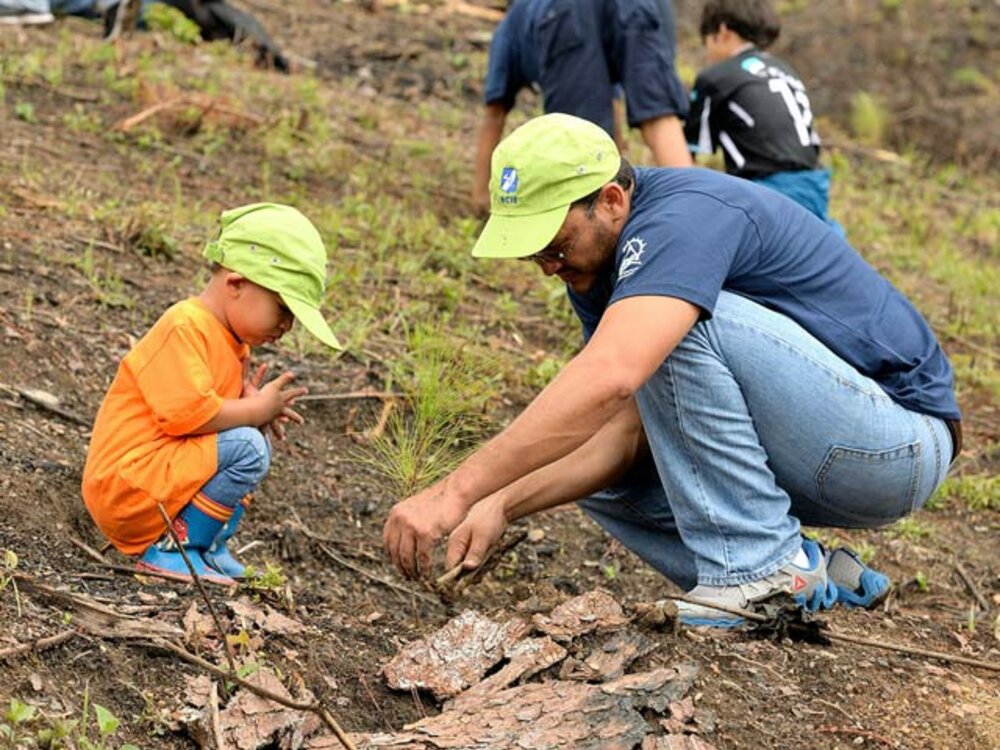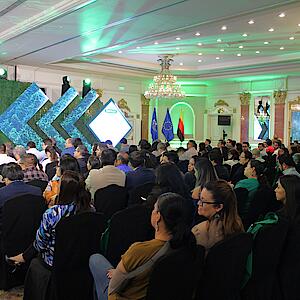CABEI contributes to environmental and social sustainability in the Central America region

CABEI conceives the axis of environmental sustainability as transversal to all its operations, thereby establishing a set of guidelines aimed at contributing to environmental sustainability
Tegucigalpa, June 5, 2018 (AFP SERVICES/CABEI).- Broken roads, withered crops, displaced populations, an increase in diseases and other grievances are part of a story that repeats itself year after year in the face of climate change.
These experiences are suffered by thousands of Central Americans who are vulnerable due to the geographical location and the shortcomings of a region that seeks environmental and social sustainability. Committed to the defense and conservation of their environmental, social and cultural heritage, the Central American Bank for Economic Integration (CABEI) has focused on strengthening its commitment to the region.
Therefore, CABEI approved an Environmental and Social Policy during 2016 through which it is committed to adopt guidelines that guarantee adequate environmental and social management, as well as to strategically address the challenges and opportunities in this area. Similarly, in order to increase its regional relevance as a resource catalyst, CABEI approved an Environmental and Social Strategy.
Significant achievements have been obtained that consolidate CABEI's determination to comply with the highest environmental and social standards, noteworthy among which are: its admission as an observer of the United Nations Framework Convention on Climate Change (UNFCCC), its accreditation as a regional entity of the Green Climate Fund (GCF), and an accreditation as a Regional Implementing Entity for the Climate Change Adaptation Fund.
Also, according to the classification methodology of the International Development Finance Club (IDFC), approximately 48 percent of the total amount of approvals during 2017 was allocated to programs and projects that contribute to mitigation, adaptation and other sectors relevant to environmental and social sustainability.
In keeping with its actions, CABEI focuses its efforts to contribute by financing programs and projects that support mitigation and adaptation to climate change in sectors such as renewable energy generation, energy efficiency, disaster reduction, water supply and wastewater treatment, among others. This way, it builds upon the Sustainable Development Goals linked to the supply of affordable and non-polluting energy (objective 7), climate action (objective 13), and ensuring clean water and sanitation (objective 6), among others.
Green Bank
This year, CABEI- an institution committed to environmental sustainability- commemorates World Environment Day with the launch of its Environmental Management System at the headquarters building, which is established under the guidelines of the International Standard ISO 14001:2015 and in the pillars of commitment, environment protection and a continuous improvement in order to reduce the institution's environmental footprint.
The system includes the activities related to all the Bank's internal processes, noteworthy among which are: the Carbon Neutral Certification of the CABEI Building in Costa Rica; the incorporation of photovoltaic energy in the energy matrix of the Headquarters Building and the El Salvador Building. In addition, the LEED Certification of the El Salvador Building's operations and maintenance are currently in process; as well as the design and implementation of the Environmental Management System of the Headquarters Building.








![[Translate to English:] [Translate to English:]](/fileadmin/_processed_/e/3/csm_WhatsApp_Image_2024-04-18_at_2.12.23_PM__2__590ef43ade.jpeg)
